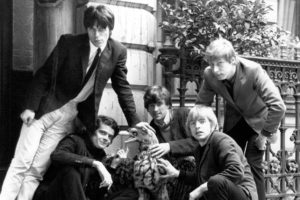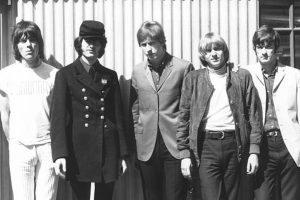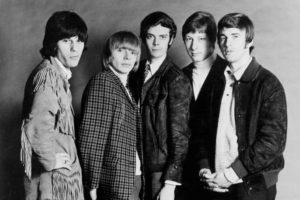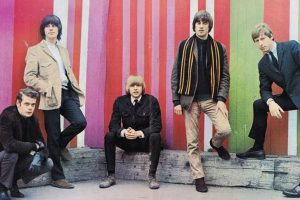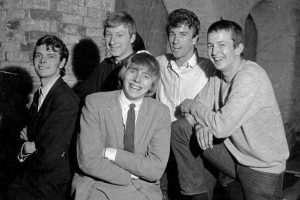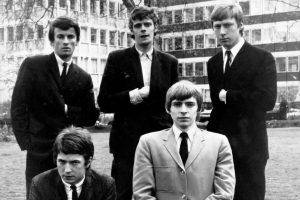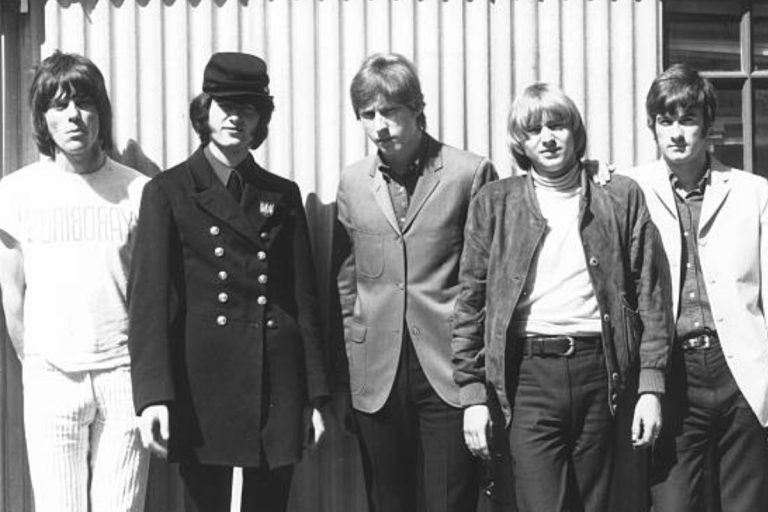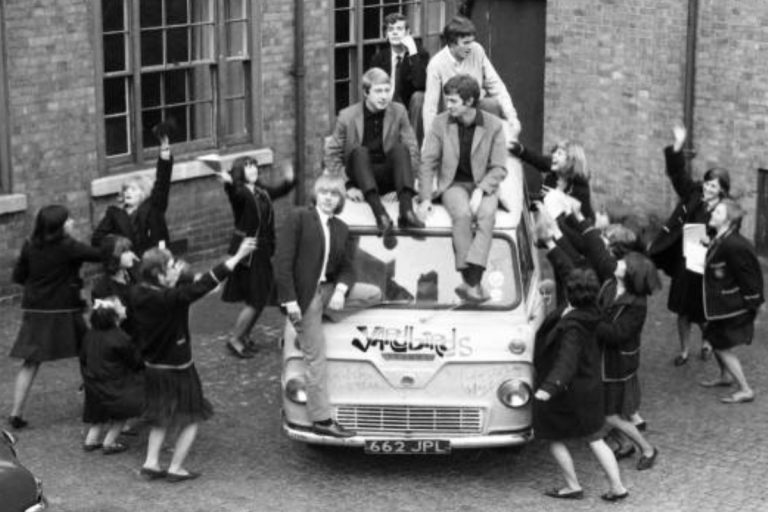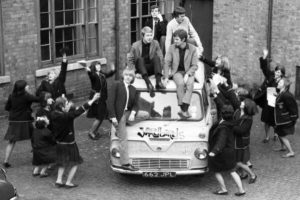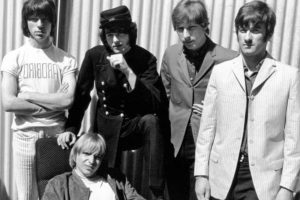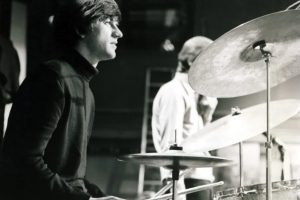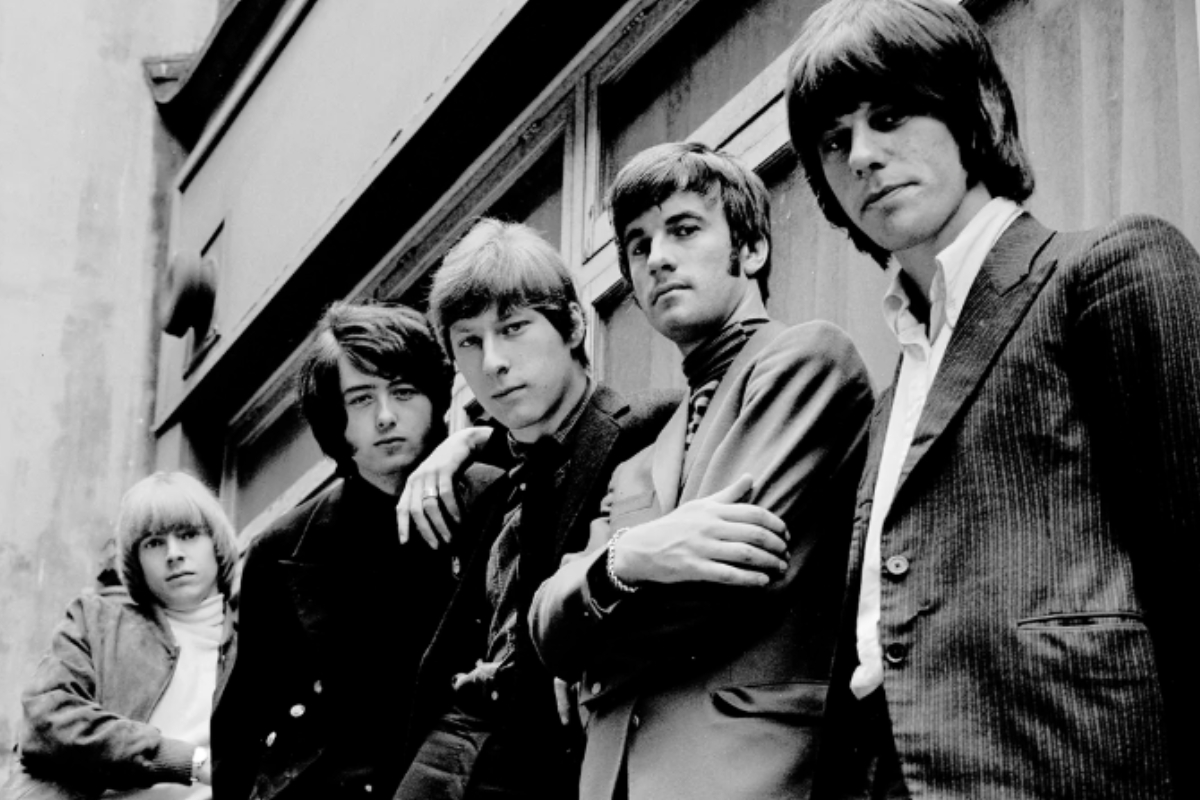
The presence of The Yardbirds in the press during the 1960s was a crucial part of their vibrant history and success. For fans, content creators, and musicians, the reports and reviews from the press during this decade helped spread their unique sound and style, as well as their unforgettable contributions to the world of rock and blues. The articles in the press during the 1960s served as a mirror to the band’s growth and transformation, as well as their powerful impact on the pop culture of that time.
The Yardbirds’ Reception in the Press during the 1960s
This article serves as a guide to understanding how the media received and wrote about The Yardbirds during the 1960s. From their early years in the industry to their lineup changes, we can see how their music reached a wide audience and how the press helped shape their image in the public eye.
What the article tackles:
- The initial reception of The Yardbirds in the press during 1963-1964
- Reception of members like Eric Clapton, Jeff Beck, and Jimmy Page
- Recognition of their sound and image from 1965-1967
- The controversies and praise they experienced in the press during 1967-1968
- The band’s legacy in the press and their role in the following decades
The Reception of The Yardbirds in the Media during 1963-1964
In the early years of their career, The Yardbirds were not immediately recognized by the broader public, but they quickly gained attention from music critics and the press in the UK. As they started performing in local clubs, they recorded sounds that focused on rhythm and blues, a genre that was just beginning to establish its position in music. For the first time, the band was compared to major names in blues, but their unique sound brought a fresh twist to the genre.
In newspapers such as Melody Maker and Disc and Music Echo, The Yardbirds were introduced as a band with great potential. However, despite their rise to fame, they also faced criticism. Some said they were too “experimental” and couldn’t reach the mainstream sound of other bands at the time. Nonetheless, their reception in the press during these years solidified their reputation as innovators.
Recognition of The Yardbirds’ Members in the Press (1965-1966)
As the band continued to evolve, key members such as Eric Clapton, Jeff Beck, and Jimmy Page became prominent in the press. These members were not just guitarists—they brought to life the iconic riffs that amazed the world. Clapton, who was initially part of the band, became known for his virtuosity on the guitar. However, when he left The Yardbirds, more attention was directed toward the band, especially with Jeff Beck replacing him.
The press during that time did not just focus on their music but also on their personal lives. Beck, for example, became a controversial figure in the press. His playing style brought an unusual energy that matched the band’s experimentation. In articles, Beck’s “rebellious” nature was often mentioned, and how he helped the band break musical boundaries with precision.
The Sound and Image of The Yardbirds Over Time (1965-1967)
By the mid-1960s, The Yardbirds’ sound began to evolve from blues to a more experimental and psychedelic style. Their songs, such as “Heart Full of Soul,” “For Your Love,” and “Shapes of Things,” became favorites among critics. Newspapers like New Musical Express and Melody Maker continued to attempt to define The Yardbirds’ sound. While the band was praised for being innovative, their shift in style was also met with criticism. Their experiments with psychedelia were criticized by some, but many recognized that they played a significant role in shaping the future of rock music.
Their image, from their clothing to their live performances, visually represented the social and cultural changes of the 1960s. In the press, they were often described as “fashion icons” who offered a new perspective on how rock stars should look.
Controversies and Praise in the Press during 1967-1968
In the later part of the decade, The Yardbirds went through many controversies, and press reports often focused more on their personal issues than on their music. One of the biggest controversies was Jimmy Page’s departure from the band, which led the press to investigate the reasons behind his decision. Sometimes, newspapers wrote about “feuds” within the band and how it affected their friendships and professionalism.
However, their contribution to music was not overlooked. Despite these issues, The Yardbirds continued to be regarded by the press as a “pioneering” band with a major role in shaping the sound of rock. The band became a bridge to new sounds and artists like Jimmy Page, who would later form Led Zeppelin.
The Legacy of The Yardbirds in the Press
Despite the trials and controversies, The Yardbirds left an indelible legacy in the press of the 1960s. After their breakup, their songs and style continued to be praised by critics and new generations of musicians. They were recognized as visionaries who paved the way for bands like Led Zeppelin and other hard rock groups. In newspapers and magazines, the stories of The Yardbirds continue to reflect their colorful and historic contributions to rock music.
The Press Coverage of The Yardbirds in the 1960s Was More Than Just Their Music
While The Yardbirds’ music continued to rise in popularity, their presence in the press was an undeniable aspect of their success. From early reviews to their final years as a band, the articles and stories written about them solidified their position as one of the most prominent bands of the 1960s. The Yardbirds will continue to inspire new generations of musicians and fans, and their legacy will remain in the press and in music history.
The Vibrant Journey of The Yardbirds in the Press during the 1960s
Overall, The Yardbirds’ presence in the press during the 1960s not only facilitated their growth as a band but also played a vital role in shaping their image and legacy in the world of music. From positive reviews and acceptance to controversies and challenges, the articles and reports in the press served as a reflection of their colorful career.
With each change in their lineup and music, The Yardbirds became a symbol of innovation and change in rock and blues, and their influence is still felt today. Their story in the press during the 1960s is an important part of music history, continuing to inspire generations of musicians and fans.
